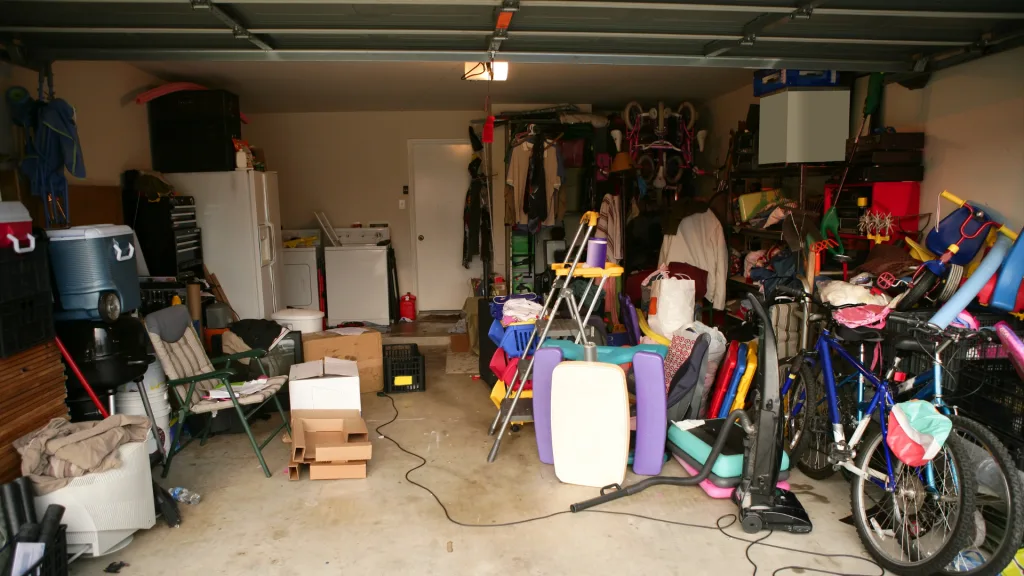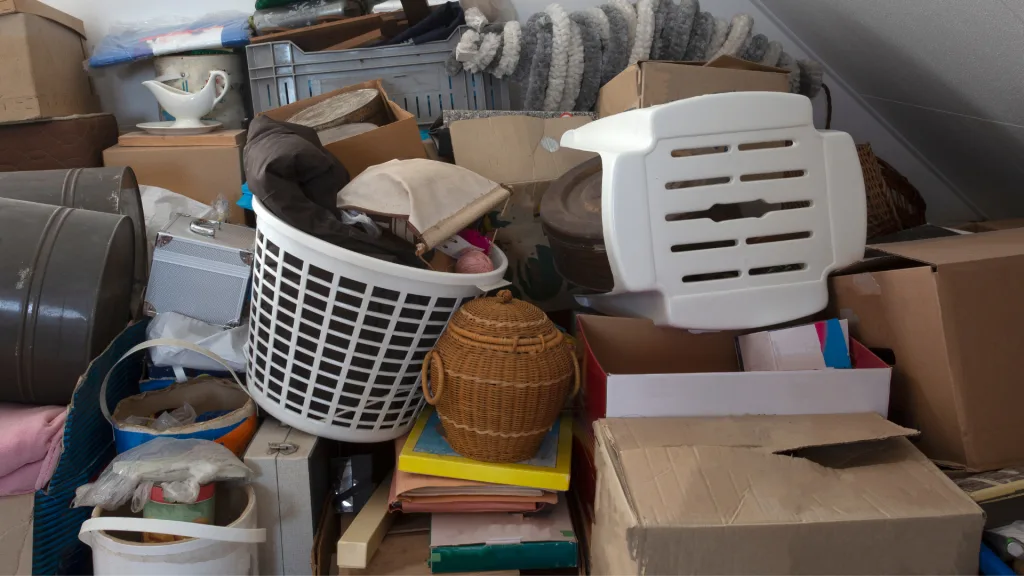Do you think your parent is a hoarder? Hoarding is a disorder that affects millions of people worldwide. While it is commonly associated with the elderly, anyone can develop this behavior at any time.
If you think you parent is a hoarder, it’s important to seek help and support. People don’t just get over being a hoarder. Sending them some articles or getting them to read a book won’t make them snap out of their hoarding.
This post will explore the symptoms of hoarding and how you can help your parent identify and overcome it.
What is Hoarding?
The #1 thing every child of a hoarder should know is that hoarding is a complex mental disorder, and it is not their parents fault.
Hoarding disorder is defined as the persistent difficulty in discarding or parting with possessions due to a perceived need to save them, regardless of their actual value. This behavior is often accompanied by intense emotional distress.
Clutter becomes so overwhelming that it interferes with the normal use of living spaces, causing significant functional and psychological deterioration. Children of hoarders may have grown up in a home that was overcrowded, unsanitary, and emotionally stressful.

Symptoms of Hoarding
- Difficulty discarding possessions: People with hoarding disorder have a hard time getting rid of items, even if they have no use for them. They often hold on to things that most people would consider useless, such as old newspapers, magazines, and broken or outdated items.
- Cluttered living spaces: Hoarders’ homes are often cluttered with piles of items that make it difficult to move around and use the living spaces for their intended purposes.
- Excessive acquisition: People with hoarding disorder often acquire more items than they need, leading to even more clutter in their homes.
- Emotional distress: The thought of getting rid of possessions can cause intense emotional distress and anxiety in hoarders.
- Isolation: Hoarders may become isolated and withdrawn because of the shame and embarrassment they feel about their homes and the condition they live in.
How to Help Your Parent
If you believe that your parent is a hoarder, it’s important to approach the situation with sensitivity and compassion.
Educate Yourself
Learning about hoarding disorder can help you understand the condition. You can start to understand why your parent is struggling to get rid of possessions.
Talk to Your Parent
Have an open and honest conversation with your parent about their hoarding behavior. Let them know that you are there to support them and that you are concerned about their well-being.
Seek Professional Help
Encourage your parent to seek professional help from a mental health professional who specializes in hoarding disorder. Eliminate their avoidance of seeking help by providing a list or resources.
Encourage Small Steps
Starting small can make the decluttering process less overwhelming for your parent. Encourage them to get rid of just a few items each day or each week.
Be Patient
The process of overcoming hoarding disorder can be long and slow. Be patient and supportive as your parent works through this challenging time.

Avoid Blame and Shame
Hoarding disorder is a real mental health condition that requires treatment, not blame and shame. Be mindful of your language and tone when talking to your parent about their hoarding behavior.
Seek Support for Yourself
Caring for a parent with hoarding disorder can be challenging and emotionally draining. Make sure to take care of yourself and seek support from friends, family, or a professional. Consider seeking therapy or counseling to help them process their experiences and learn coping mechanisms. Support groups can also be helpful in connecting with others who have had similar experiences and understand the challenges that come with growing up in a hoarding household.
Keep Calm if Your Parent is a Hoarder
By educating yourself, talking to your parent, and seeking professional help, you can help your parent overcome hoarding disorder and live a happier, more fulfilling life.



Leave a comment